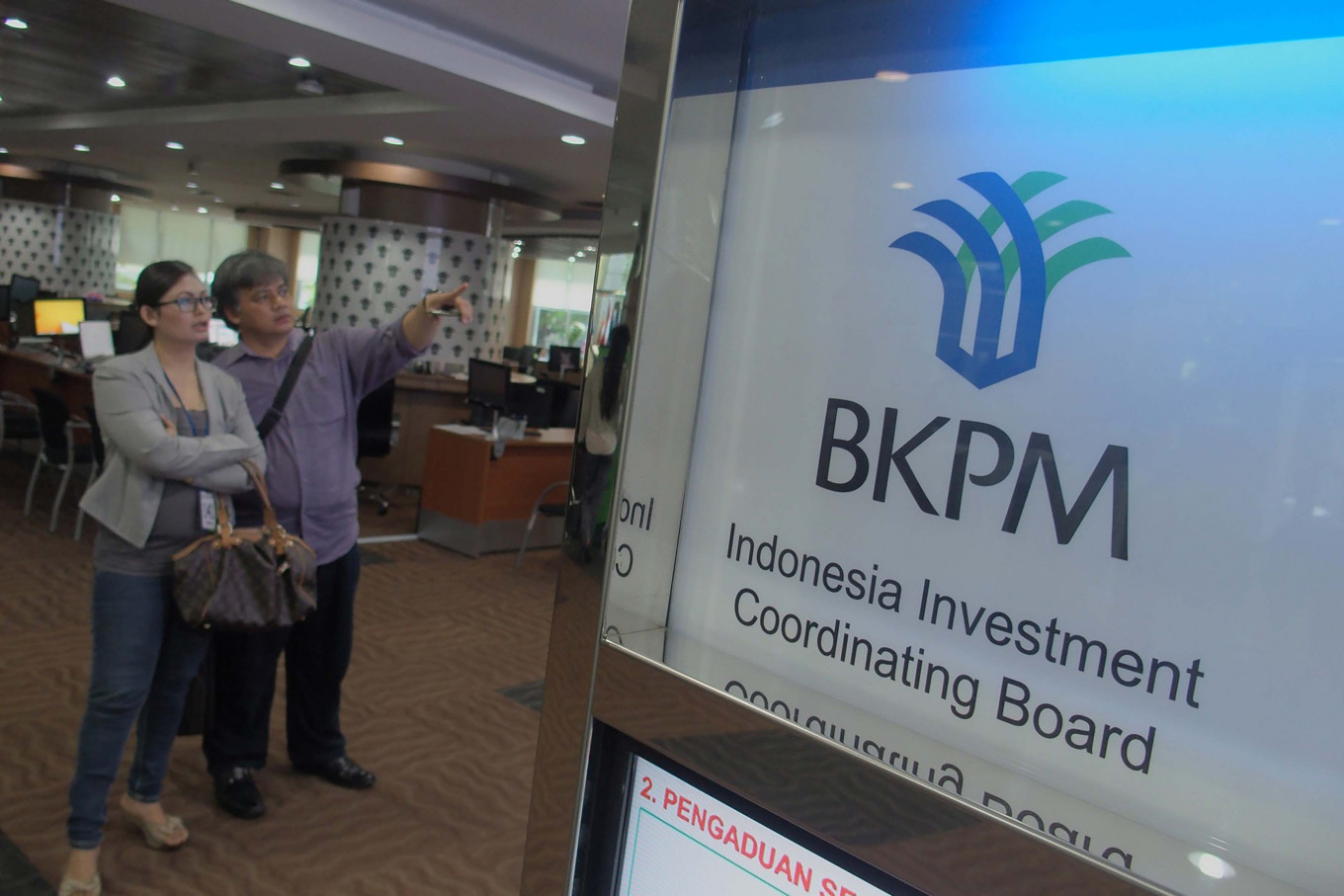Popular Reads
Top Results
Can't find what you're looking for?
View all search resultsPopular Reads
Top Results
Can't find what you're looking for?
View all search resultsSejin latest in wave of companies to relocate factories to Indonesia
Garment company PT Sejin Fashion Indonesia, a subsidiary of South Korean footwear manufacturer Parkland Co., Ltd., has made the decision to relocate its production base from China to Indonesia, a top official said on Saturday.
Change text size
Gift Premium Articles
to Anyone
G
arment company PT Sejin Fashion Indonesia, a subsidiary of South Korean footwear manufacturer Parkland Co., Ltd., has made the decision to relocate its production base from China to Indonesia, making it the latest in a wave of companies that have announced plans to relocate their manufacturing plants to the country.
The plan was confirmed following a visit to South Korea by Investment Coordinating Board (BKPM) head Bahlil Lahadalia and State-Owned Enterprises Minister Erick Thohir on Wednesday and Thursday.
“One more company is going to relocate from China to Indonesia. It’s a labor-intensive industry, it could add up to 4,000 new jobs. Hopefully, it will help the economy during this COVID-19 crisis,” Bahlil said in a written statement on Saturday, adding that Sejin would also increase foreign exchange as it exported its products.
Sejin plans to relocate its factory from Dalian city in China to Pati regency in Central Java. The company’s total investment value is estimated at US$35 million.
President Joko “Jokowi” Widodo announced in June that seven foreign companies had confirmed plans to relocate production facilities to Indonesia, mostly from China. The relocation plans indicate foreign investors are still attracted to Indonesia despite the global economic downturn during the pandemic. The relocation plans are predicted to bring $850 million in investment to the country and create employment for 30,000 workers.
The footwear maker joins other foreign companies that have decided to move their manufacturing activities Indonesia.
Japanese electronics giant Panasonic relocated its facilities to Indonesia to make Southeast Asia’s biggest economy its export base for home appliances, while LG Electronics moved its facilities from South Korea with the goal of making Indonesia its regional hub as its seeks to expand its market in Asia and Australia.
Other companies that have reportedly confirmed plans to relocate include Taiwan-based audio equipment maker Meiloon, Japanese rubber products manufacturer Sagami, United States-based light product maker Alpan, Taiwan-based tire-maker Kenda and Japanese automotive component manufacturer Denso. Alpan reportedly plans to relocate its facilities from Xiamen, China, to Kendal, Central Java, due to the 25 percent import tariff slapped on products from China by the United States.
Sejin expects to receive support from the Indonesian government in the form of a survey on non-new capital goods (BMTB) machines to be relocated from factories in China, the establishment of an industrial zone, a permit on bringing in expert foreign workers during the pandemic and eligibility for a tax allowance scheme.
Bahlil said the government had accepted Sejin’s application on tax incentives. Parkland CEO Myeong-gyu Park expressed optimism that Sejin would thrive in Indonesia, just as Parkland had for the past 15 years.
The Busan-based company established its local company, PT Parkland World Indonesia, in 2005 and has since produced footwear for brands such as Adidas, New Balance and Reebok. It has factories in Serang in Banten and Jepara, Rembang and Pati in Central Java.
Sejin director Ho-jung Park said he appreciated the BPKM’s quick response to the investment. “We are greatly helped by all the support given. We will do our best so that we can immediately realize our investment in Indonesia,” Park said.
Despite the relocations, business associations and experts have warned that the government still needs to do more to make the country more attractive to investors.
Indonesia recorded a further decline in foreign direct investment (FDI) realization in the second quarter this year. FDI fell 6.9 percent year-on-year (yoy) to Rp 97.6 trillion (US$6.67 billion) in the April-June period, according to BKPM.
This is a continuation of the downward trend recorded in the first three months of the year, when FDI dropped 9.2 percent yoy.










